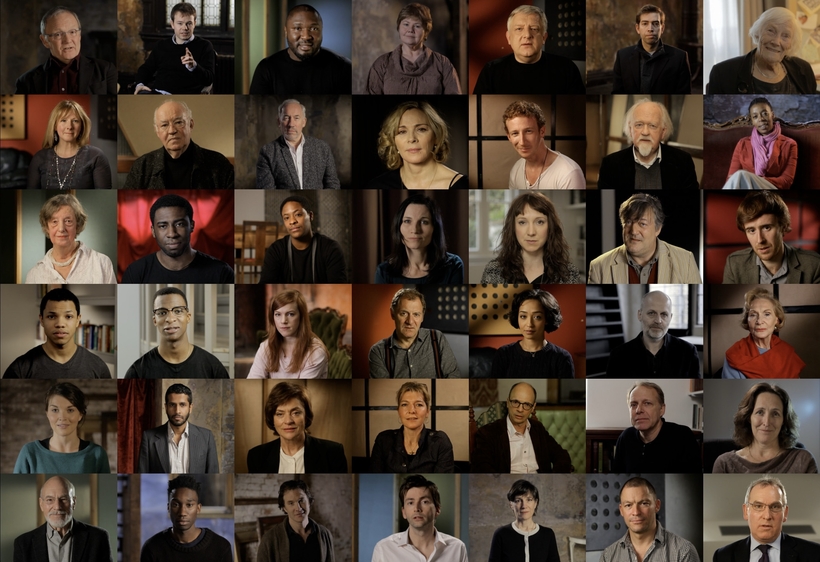In the bazaar of content and ideas that churns out apps for everything, it totally computes that William Shakespeare should have his outlets, and so he has, many. The app Shakespeare’s Sonnets, which has been around since 2012, incorporates the authoritative Arden Shakespeare text with notes and commentaries, plus a facsimile of the original quarto, published in London by Thomas Thorpe in 1609; no manuscript material survives. But the soul of the project is the series of 154 specially created, scarcely minute-long films presenting these most addictive of poems as spoken by 42 outstanding Shakespearean actors, scholars, and other specialists.
The package adds up to a phenomenal study tool. But it’s cumbersome to navigate—and there’s no provision for playing the films straight through the way you would listen to the recording of an epic symphony. For that, turn to The Sonnets by William Shakespeare, newly released on the streaming platform Marquee TV in three hour-long segments.
Eyebrows arched, the bespectacled Patrick Stewart leads with the publisher’s famously peculiar dedication, “To the onlie begetter of these ensuing sonnets …,” signed T. T. Of all people, Kim Cattrall, best remembered as Samantha in Sex and the City, handles Sonnet One (“From fairest creatures we desire increase”). Next up is the sibylline Noma Dumezweni (“When forty winters shall besiege thy brow”), followed by Simon Callow—benign, but nobody’s fool (“Look in thy glass and tell the face thou viewest”). Nothing marks this collection more vividly than its diversity in age, race, gender, personality, and life experience. Collectively, all those faces are Shakespeare.
Over the centuries, literary gumshoes have investigated the sonnets as a virtual roman à clef, hoping to discover the secret history of the aging playwright’s amorous entanglements with a pampered aristocratic youth of surpassing beauty and later with a “dark lady” who bestows her favors on them both. But unlike a novel conceived as a coherent narrative for an anonymous general public, the Sonnets record, like vitals on a fever chart, a connect-the-dots arc of isolated epiphanies. Each addresses a personally implicated readership of one. What fascinates more than the question of who does what with whom in whose bedchamber is the depth and immediacy of Shakespeare’s emotional responses.
Under the direction of John Wyver—professor of the arts on screen at the Westminster School of Arts, University of Westminster, and author of the magisterial Screening the Royal Shakespeare Company: A Critical History—the performers in The Sonnets of Shakespeare gaze straight into the camera, refracting the poet’s psychodrama through the prism of their distinctive personalities. Benign or irate, bemused or desperate, born yesterday or having seen it all, they are talking to you. What’s personal bleeds into something universal. You’re on the hook, shocked into self-recognition.
The median quota of sonnets per talking head is four or five. Some readers get just a single shot; the lesser-known Sam Alexander, with his perpetual-grad-student self-irony, racks up seven. Unaccountably, Marquee TV provides no list of names, no rogues’ gallery of head shots. You’ll likely recognize Fiona Shaw and David Tennant, though other faces you know from other contexts may leave you stumped. Expect to fall under the spell of many voices—that of Siân Phillips, for instance, in whom Marlene Dietrich meets Alice in Wonderland, or of the soulful young Edward Bennett, who commands the bass register of a cathedral organ. To sort out who’s who, and you’ll want to, the app’s the thing.
The Sonnets by William Shakespeare is available for streaming on Marquee TV; the “Shakespeare’s Sonnets” app is available to download on Apple’s App Store
Matthew Gurewitsch writes about opera and classical music for AIR MAIL. He lives in Hawaii

